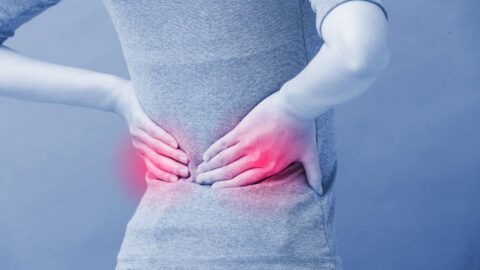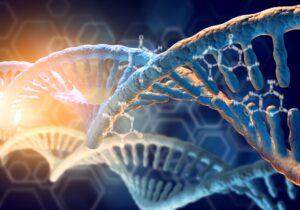Navigating Estrogen and its Metabolites
by Vanita Dahia
All Estrogens are not the same. As a woman ages, her estrogens together with progesterone declines to prepare for fertility in the younger years and protection in her post-menopausal years. Problems arise when estrogens become dominant relative to progesterone or Estrone elevates relative to estradiol or estriol.
An imbalance or estrogens is linked to a wide range of symptoms from hot flushes, night sweats, PMS, irritability, infertility, weight gain, irregular menstrual cycles, low libido, and foggy brain. Estrone is the most proliferative estrogen responsible for more serious hormone associated conditions such as endometriosis, fibroids, PCOS, fibrocystic breasts including cancer.
Why are Estrogens important?
Estrogen is a sex hormone that is produced primarily in the ovaries in women. It is also produced in small amounts in the testicles in men. Estrogen plays a role in a variety of functions, including:
- Reproductive function: Estrogen is essential for the development and maintenance of female reproductive organs, such as the ovaries, uterus, and fallopian tubes. It also plays a role in the menstrual cycle and pregnancy.
- Bone health: Estrogen helps to keep bones strong and healthy. After menopause, when estrogen levels decline, women are more likely to develop osteoporosis, a condition in which bones become weak and brittle.
- Heart health: Estrogen has a protective effect against heart disease. It helps to lower cholesterol levels and reduce the risk of heart attack and stroke.
- Skin health: Estrogen helps to keep skin looking young and healthy. It also helps to prevent wrinkles and age spots.
- Brain health: Estrogen may have a protective effect against Alzheimer’s disease and other neurodegenerative diseases.
The symptoms of Estrogen Imbalance
Clinical manifestations of this imbalance include:
• Vasomotor symptoms: Hot flashes and night sweats.
• Neuropsychiatric symptoms: Irritability, mood swings, and “brain fog.”
• Reproductive issues: PMS, irregular menstrual cycles, infertility, and low libido.
• Metabolic changes: Weight gain.
Some common symptoms include:
- Hot flashes: Hot flashes are a sudden feeling of warmth that spreads over the body. They can last for a few minutes or up to an hour.
- Night sweats: Night sweats are episodes of sweating that occur during sleep. They can wake you up and make it difficult to sleep.
- Vaginal dryness: Vaginal dryness is a lack of moisture in the vagina. It can make sex uncomfortable and painful.
- Irregular periods: Irregular periods are periods that are not regular in terms of length or frequency.
- Weight gain: Weight gain is a common symptom of estrogen imbalance, especially in women with PCOS.
- Acne: Acne is a condition that causes pimples to form on the skin. It is more common in women with PCOS.
- Pain: Pain is a common symptom of endometriosis. It can occur in the pelvis, lower back, and abdomen.
- Infertility: Infertility is the inability to get pregnant. It can be a symptom of endometriosis or PCOS.
Types of Estrogens
There are three main types of estrogen:
- Estradiol: This is the most potent form of estrogen. It is produced primarily in the ovaries during the reproductive years.
- Estriol: This is the weakest form of estrogen. It is produced primarily by the placenta during pregnancy.
- Estriol: This is a type of estrogen that is produced in the body from other forms of estrogen. It is the main form of estrogen produced in the body after menopause.
Test for Female Hormones – PMS, Menopause, PCOS, Endometriosis, Fertility
Take the questionnaire on Female Hormone, Adrenal, and Thyroid Balance Questionnaire
Testing active hormone levels and its metabolism, methylation and clearance with the right lab test, can potentially alleviate the development of hormone associated health conditions.
Educational Webinar
Navigating Estrogen and its Metabolites
Hormonal Harmony: The Crucial Differences Between Estrogens
All Estrogens are not the same. As a woman ages, her estrogens together with progesterone declines to prepare for fertility in the younger years and protection in her post-menopausal years.
Why is it Important?
Problems arise when estrogens become dominant relative to progesterone or Estrone elevates relative to estradiol or estriol.
Estrogens are a diverse group of steroid hormones (primarily estradiol (E2), estrone (E1), and estriol (E3)) that exert distinct physiological effects throughout a woman’s life. While overall estrogen and progesterone levels decline with age, particularly in the transition to menopause, the relative balance and metabolism of these estrogens are critical for health.
An imbalance or estrogens is linked to a wide range of symptoms from hot flushes, night sweats, PMS, irritability, infertility, weight gain, irregular menstrual cycles, low libido, and foggy brain. Estrone is the most proliferative estrogen responsible for more serious hormone associated conditions such as endometriosis, fibroids, PCOS, fibrocystic breasts including cancer.
Testing active hormone levels and its metabolism, methylation and clearance with the right lab test, can potentially alleviate the development of hormone associated health conditions.
Learning Outcomes
In this webinar, you will learn:
➡️ How important estrogens are in the body
➡️ Types and roles of estrogens
➡️ Measuring estrogen and its metabolites
➡️ An in-depth understanding of estrogen metabolites
➡️ Balancing estrogens with naturally and with bio-identical hormones




